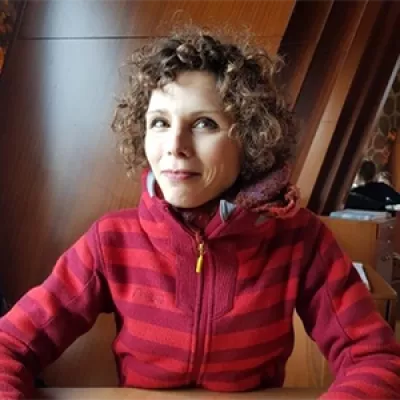Dr Irna Hofman
Honorary Research Associate
Honorary Research Associate
Academic Profile
Irna Hofman is a rural sociologist, specialised in agrarian and social change in Central Asia. She has carried out extensive periods of research in Tajikistan since 2012, and previously also worked in Uzbekistan.
Irna recently completed post-doctoral research at Oxford's Faculty of Asian and Middle Eastern Studies as part of an ERC-funded project "China, law and development."
She obtained her Ph.D. from Leiden University, the Netherlands in 2019, with a dissertation focussed on the political economy of agrarian transformation in Tajikistan: "Cotton, control, and continuity in disguise: The political economy of agrarian transformation in lowland Tajikistan."
She holds an B.Sc. and an M.Sc. in Environmental Sciences (Environmental Policy), with minors in Rural Development Sociology, and Rural Sociology, respectively, from Wageningen University, the Netherlands.
Irna actively engages in policy advice and outreach. She is a research associate of the Second Cold War Observatory initiative and a member of the advisory board of the TRANSECT research project at the Eberswalde University for Sustainable Development (HNEE), Germany. She is affiliated with a knowledge hub focussed on EU-Central Asia relations (EUCAM) in Groningen, the Netherlands and has advised various international organisations working in and on Central Asia, with a focus on rural development, water management, gender, migration and conflict, including the EU, the ADB, the IOM, and several smaller NGOs.
Current Research
Irna's research interests are broad and sit at the intersection of political economy, political ecology, and political sociology. In recent years, her focus has narrowed down to centre on rural labour, gender, and commodity politics, (currently) with a focus on the Global East.
Irna is currently completing a monograph focussed on the political economy of cotton in Tajikistan, which is based on her dissertation and post-doctoral research projects. Her research agenda for the coming years centres on the rural everyday of geopolitics, with a focus on China's growing assertiveness in the global agrifood regime, shifting geographies of production, and rural labour.
Teaching and Supervision
Irna is excited about ethnography and multi-scalar research in and beyond rural Central Asia. In recent years, she has supervised MA theses and taught BA, MA, and PhD graduate courses at the University of Leiden and Wageningen University, respectively. In 2020, she was a part-time lecturer at the National University of Tajikistan. Irna is currently involved as mentor in the British Academy financed USTA Mentorship programme. She welcomes requests by DPhil/MPhil/MA/MSc students for supervision or advice.
Selected Publications
- Hofman, I. (2024) Seeds of empire or seeds of friendship? The politics of the diffusion of Chinese crop seeds in Tajikistan. Journal of Agrarian Change, 24(2): e12581.
- Hofman, I. (2021) Migration, crop diversification, and adverse incorporation: Understanding the repertoire of contention in rural Tajikistan. Canadian Journal of Development Studies, 42(4): 499-518.
- Hofman, I. and Visser, O. (2021) Towards a geography of window dressing and benign neglect: The state, donors and elites in Tajikistan’s trajectories of post-Soviet agrarian change. Land Use Policy, 111.
- Hofman, I. (2018) Soft budgets and elastic debt: Farm liabilities in the agrarian political economy of post-Soviet Tajikistan. The Journal of Peasant Studies, 45(7): 1360-81.
Commentaries, op-eds and blogs (selected)
- Hofman, I. (2023) Bim and bumpy roads in Tajikistan: A dog as guard and companion "in the field". Rural Sociology Weblog, 23 March 2023.
- Hofman, I. (2022) Just working for wood: life inside Tajikistan’s silk industry. Open Democracy, 11 August.
- Hofman, I. (2022) Cotton scale. The History of Soviet Central Asia in 100 objects, University of Oxford.
- Hofman, I. (2022) Tajikistan. The people's map of global China.
- Hofman, I. (2021) In the interstices of patriarchal order: Spaces of female agency in Chinese-Tajik labour encounters. Made in China, #2 May-August 2021.





